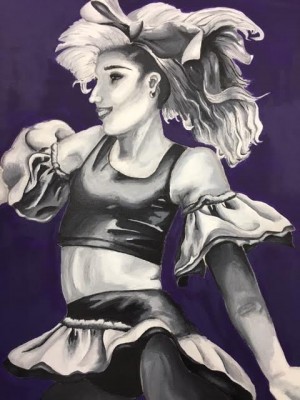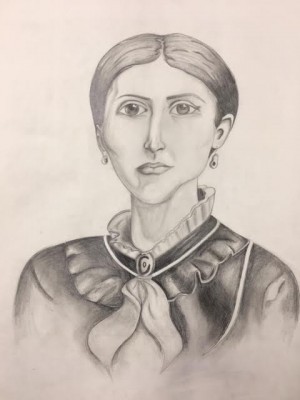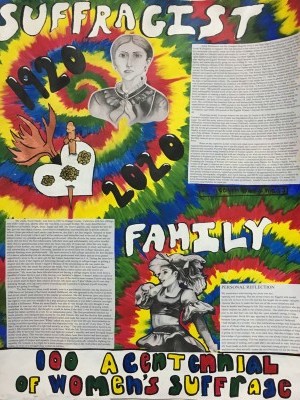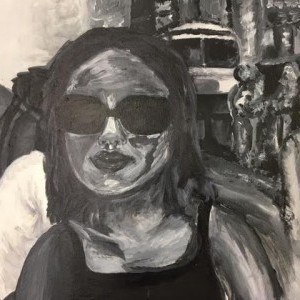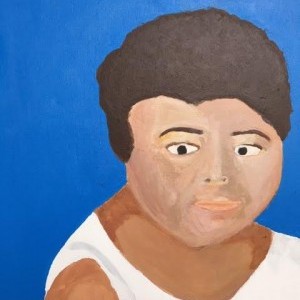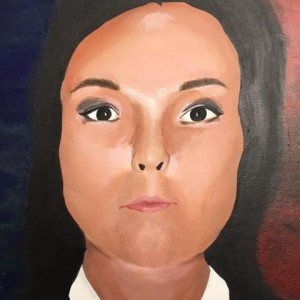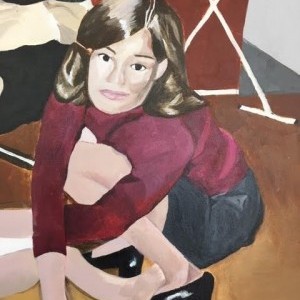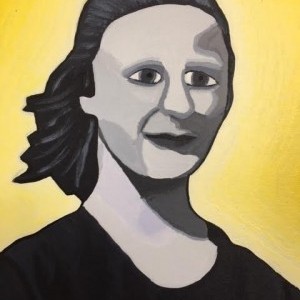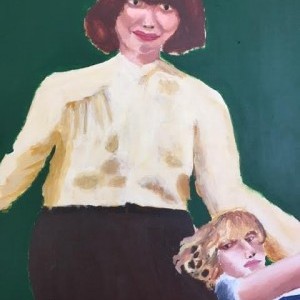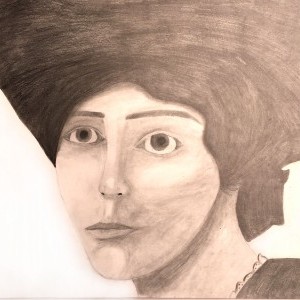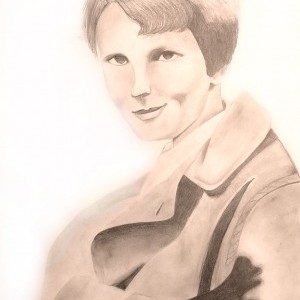Meelah Harkness
Immaculate Heart High School | Los Angeles, CA | 9-12th Grade
Inspirational Family Member
My Mom
My mom, Suzie Hardy, was born in 1967 in Orange County, California with two siblings, one older sister and, shortly after she was born, a younger brother. My mom describes her childhood as bubbly, bright, shiny, happy and safe. My mom’s parents only wanted the best for her, got her into dance classes, drove her to competitions and enrolled her in private Catholic school from pre-school until senior year. However, she didn’t not face tragedy, betrayal or heart break.
Like everyone’s life it can’t all be rainbows and butterflies and at the end of her high school career my grandpa and grandma got divorced. After the divorce my mom, aunt and my uncle did not have the best relationship with their mom and unfortunately only a few months later did my grandma pass away when my mom was only 19 years old. After the very tragic death of her mother, my mom, although very grateful for the opportunity to study and learn on full scholarship at Chapman University, decided to un-enroll from her college education and pursue dancing more professionally. My mom received a full college education for free because of a dance scholarship but she decided to go more professional with dance and an even greater opportunity arose to be a “Laker Girl” for the Lakers basketball team in L.A..
During the interview, I asked my mom if she regrets not following through with staying in college longer or getting a degree and she said she doesn’t regret it because of the circumstances she was under she understands why she made the choices she made... “but I feel like if my mom had lived then I could have been more motivated and pushed to have a dance career and still receive an education.” My mom has been ridiculed about not having a college degree in the work force a handful of times but it is just a title, having your bachelor’s degree. It doesn’t make you inferior if you don’t have one.
I believe my mom to be one of the most in-tune women I know and there is so much more to know than what is in books. My mom says “I don’t think you’ll ever stop learning though, you can never know everything and I continue to educate myself everyday despite not going to college.”
The first time my mom could actually vote in a presidential election was the election of 1988. However because of her more isolated childhood, she was ignorant of the world of politics and never clearly paid attention to the outside government. She did, however, have one history teacher at her elementary/middle school who always told them that it is such a privilege to have the right to vote and you wouldn’t be a true and good American if you didn’t exercise our right to make a difference. When my mom finally was able to vote though she only thought it was important to vote not who you vote for so in the election of 1988, instead of choosing which candidate she liked better, she thought it would be better if she didn’t vote for either Dukakis or Bush but rather scribble in a vote for an independent party. The first presidential election my mom actually was intrigued and excited by was Bill Clinton’s, this was the election that sparked her interest in politics and different political parties and made her want to do individual research on politics on her own time now. When I asked my mom if she ever felt any discrimination in voting or politics growing up in society she responded with “no, not at all” every time; “I feel like I was given as much of a right and security as a boy.” The only discrimination faced in my mom’s life round her gender was in the workforce. With the Me Too movement my mom was finally able to have her voice, her story and fight for women’s equality and need for equal respect in the workplace. This was her chance to join with others, hear their stories and have people relate to her story in a time where women were banding together and supporting each other for a common goal of respect and equality. Even though it was not politically related to fighting for equality for women, it is a fight for a more modern concern that in the workplace and socially, today, is more of a struggle than women in politics.
Historical Figure I Admire
Jessie Boucherett
Jessie Boucherett was the youngest daughter born to the High Sheriff of Lincolnshire in the village of North Willingham in England. She was educated at the school run by the Byerley sisters at Avonbank where the curriculum was mostly made up of the works of women writers at the time which explains how she began on her path as a feminist and an advocate for women’s rights. Boucherett was taught at a young age that her rights mattered and there were other women out there fighting for the future and equality of women. However, after reading the English Woman’s Journal, Jessie became more adamant about pursuing activism for women’s rights, and started physically going out and looking for ways she can help make a difference. After reading several different editions of this feminist political magazine, she visited the journal office in London and became friendly with two of its founders, Bessie Parkes and Barbara Bodichon. In 1859, she cofounded the Society for Promoting the Employment of Women, or SPEW, and in 1865, the same women gathered more feminist advocators and formed the Kensington Society.
The Society had a close relationship with English institutions of higher education inclusive to women and they each benefited from the relationship because the Society would give them business in return for support. On November 21, 1865 the societies' women discussed the topic of parliamentary reform. The women thought it was unfair that women in general were not allowed to vote in parliamentary elections so, a petition was drafted asking Parliament to grant women the right to vote. In 1863, Boucherett published her first novel - Hints for Self-Help: A Book for Young Women and, as Linda Walker states, “[Boucherett] supported by her private income and surrounded by like-minded new friends. [She] subsequently devoted much of her life to the cause of women’s emancipation.” Boucherett dedicated her entire existence to making a mark in history to further women’s success in the future, beyond her years. By the1890’s there were 17 individual groups advocating women’s suffrage alongside those of Boucherett’s. Unfortunately, she died of liver cancer on October 18, 1905, however she did not leave without making her mark. She contributed her donations that are well known today because of the impact they made on the organizations she donated to: 2000 pounds to the Society for Promoting the Employment of Women, 2000 pounds to the Freedom of Labour Defense Society, 500 pounds to the British Union for the Abolition of Vivisection, and finally 500 pounds to the English Woman’s Journal, the textual manifestation that started this all.
What the Project Means to Me
Impacting society to accept women was not easy for Jessie to do in the time period she lived in. Feminist societies received a lot of slack and degradation from men on why women should be considered equal. Up until this point, almost everyone in society was afraid to speak up about unfair treatment because of differences of power between men and women. Politically women could never hold office, let alone be allowed to vote for who holds office. The petition that the Kensington Society formed was the first big push in the UK for the government to notice how exhausted women are of being quiet. In the English culture, and frankly in most cultures around the world, women were seen as less than, only fit to run the household and take care of the children. Women in society were put in unequal, unfair positions when they were not given the same rights as men to receive education. Women are not any less intellectual than men are, it’s just the fact that they were not given equal opportunities to prove themselves worthy of being taken seriously in the work force. When society started to accept women and create more organizations to advocate for their rights, it impacted Boucherett by allowing her to see the impact she’d created and how she’d helped women become more socially accepted. Possibly then did she notice she had created this domino effect of organizations, charities and societies being created in honor of women equality.
Boucherett did not let historical background or context stop her from speaking her truth and standing up for what she believed in. Thanks to her feminist education in England and to the English Women’s Journal did Jessie have the courage and the backbone to challenge the status quo. Even today we still see Jessie’s contributions in our society. The Society for Promoting the Training of Women still operates today under the name Futures for Women Charity, helping women of all ages to improve and create a career in anything they really love, no matter if the industry is mainly made up of males. SPEW set up the first commercial school to train women as book keepers and made it possible for women to become accepted in the clerical branches of the Civil Service. They also sponsored the first female printing businesses, opened up possibility for women to be apprenticed in occupations like hairdressing, photography, telegraphy, and watch-making, and SPEW even enabled the first two women to be accepted for training as hospital dispensers, all industries that were mainly made of males. If it weren’t for Jessie Boucherett, women today wouldn’t be taken as seriously, wouldn’t have the skills to do most jobs or even have opportunities for equal pay.
Explore the Archive
More From This Class
Click on the thumbnails below to view each student's work.Deadline Extended
There's still time to join Women Leading the Way.
Become a part of our storytelling archive. Enroll your class today.
Join the Project

